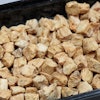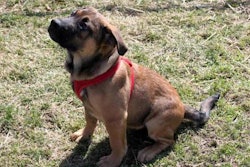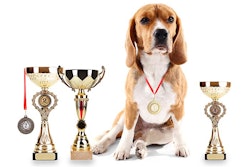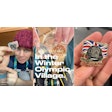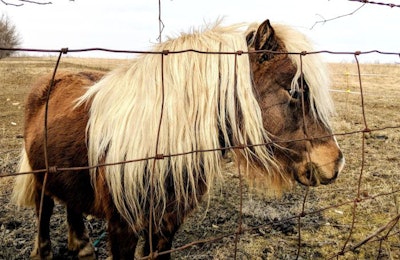
Dog and cat foods on the European market may contain animals not listed on the ingredient panels, which could cause problems for pets with allergies. Scientists found genetic traces from horses, cows, chickens, ducks, fish, goats, geese, pigs, rabbits, sheep and turkeys in pet foods that did not list those animals on their labels. The majority of tested dry and wet, dog and cat foods were mislabeled, according to genetic analysis by researchers with the University of Padua in Italy.
In their conclusions, the researchers noted that producing uncontaminated pet foods is possible, since ten products did contain only the animals listed on the label. However, they suggested that homemade elimination diets may be reasonable options for pet owners trying to avoid an adverse reaction to a specific ingredient in their dog or cat, since homemade diets allow greater control of what animal proteins are used.
The journal BMC Veterinary Research published the study “Undeclared animal species in dry and wet novel and hydrolyzed protein diets for dogs and cats detected by microarray analysis.”
Results of research on mislabeled pet foods
Altogether, researchers analyzed forty pet foods available on the European market. The pet foods contained either novel proteins or hydrolyzed proteins. The analysis included 15 dry and 25 wet dog foods and four cat foods produced by 14 different producers. Of those analyzed products, nine dry pet foods and 22 wet pet foods were made with novel proteins, while six dry and three wet pet foods were made with hydrolyzed proteins.
Ten of the 40 pet foods contained only animal protein sources that matched the label. Five did not contain the declared animal species. Genetic testing revealed the presence of undeclared animal species in twenty-three of the pet foods. The labels on two products were too vague to allow accurate assessment.
Pork, chicken and turkey appeared most frequently as unlabeled species. Dry pet foods contained undeclared animals more frequently than wet pet foods. Pet foods made with hydrolyzed proteins contained fewer contaminant animal species than novel protein pet foods.
Thirteen out of 14 brands tested contained at least one animal not on the label.


